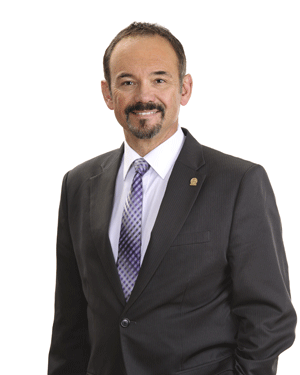The Canadian Bar Association’s B.C. branch is pushing for lawyers willing to work in rural areas to be able to access the province’s student loan forgiveness program.

“Our proposal [to the provincial government] was that if a lawyer would commit for a period of say five years that a fifth would be written off over each year — it’s equivalent to programs that the government currently has for health professionals who agree to work in underserviced areas of the province,” Michael Welsh, president of CBABC, says.
The proposal states “our new lawyers are concerned about their financial future. A student loan forgiveness program for new rural BC lawyers would not only bring jobs to rural BC but would help support more vibrant rural infrastructure and economies.”
CBABC has been attempting to address the issue of high-need rural communities for the past few years, including through their program Rural Education and Access to Lawyers which is funded by the law society and the law foundation in the province.
REAL finds law students summer positions in communities that need lawyers and through that process CBABC identified “a number of communities . . . that are reaching a point where there’s going to be a crisis in terms of being able to have access to legal services if something’s not done over the next several years,” Welsh says.
It was through the REAL program that CBABC became more sophisticated in targeting where the real need is, Welsh says. The need arises because existing lawyers in rural areas are older and facing retirement or at least a reduction in the amount of work they’re doing, but younger lawyers aren’t coming in to replace them. Welsh says in large part that’s due to high student debt loads and the concern that there won’t be enough income — at least during the start-up period — to be able to keep up with payments. Larger centres offer jobs with larger firms and guaranteed incomes, Walsh says, and so more young lawyers are heading to urban settings.
“That was the genesis of our student loan forgiveness proposal — we saw that need, and identified that reason for it, so we’re taking it in tandem with what we’re already doing to see if we can work with government to address that,” Welsh says.
While “there’s nothing like what we’re proposing . . . in any other province or territory,” Welsh says the CBABC’s proposal notes that in 2015:
• Newfoundland and Labrador became the first province to completely eliminate its student loan program by replacing provincial student loans were with grants. While NL does not have a law school, its loan program also applies to programs outside of NL.
• In New Brunswick, undergraduates can apply for provincial debt reduction after holding total loans greater than $32,000.00. In Nova Scotia, students can defer payments on their provincial student loans for up to 12 months during articles.
• Some Canadian law schools are experimenting with income contingent loan programs. At York University’s Osgoode Hall, five law students are benefitting from a program that provides funds to cover tuition costs, requiring repayment depending on the student’s financial status before and after law school.
• Osgoode Hall’s law school has implemented a pilot project that is an income contingent loan program aimed at granting eligible students with relief against tuition payments which are to be repaid according to their post-law school income levels.
• The University of Toronto’s Faculty of Law has an income contingent “Back-End Debt Relief Program” designed to assist graduates with repayment of student loans incurred while studying at the law school.
Welsh also notes other countries are facing similar access to justice issues in rural areas. He says in the United States, North Dakota pays lawyers $12,000 annually to practise in its high-need communities.
CBABC has yet to hear back from the government, but Welsh says he’s hopeful discussions will start over the next few months.










